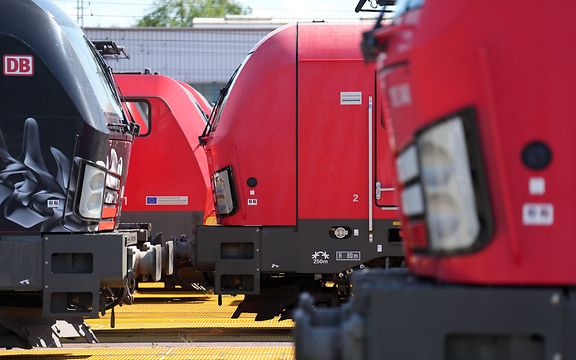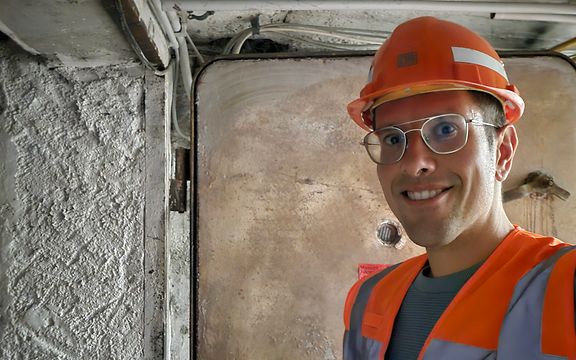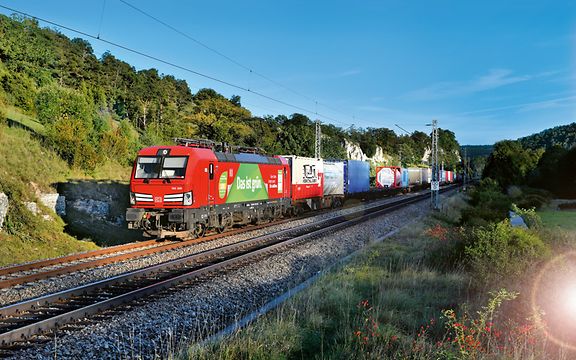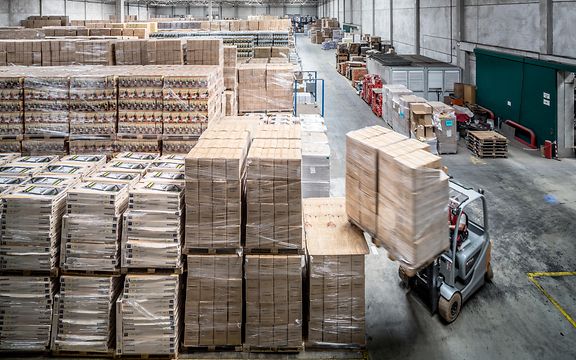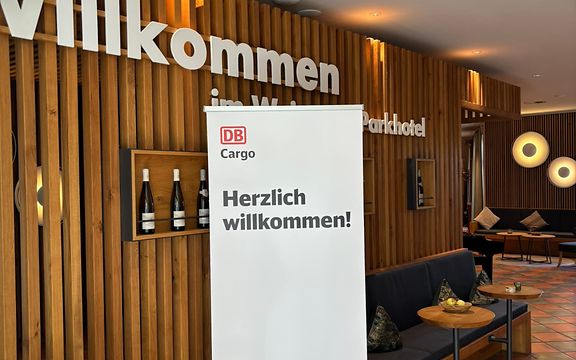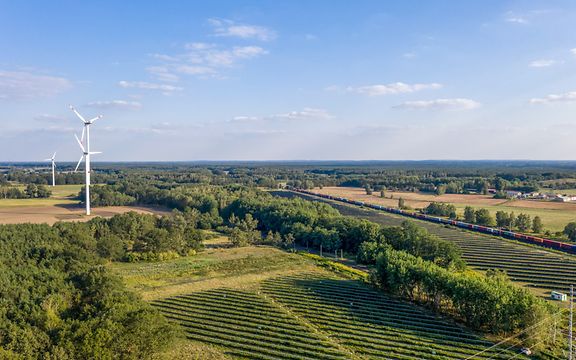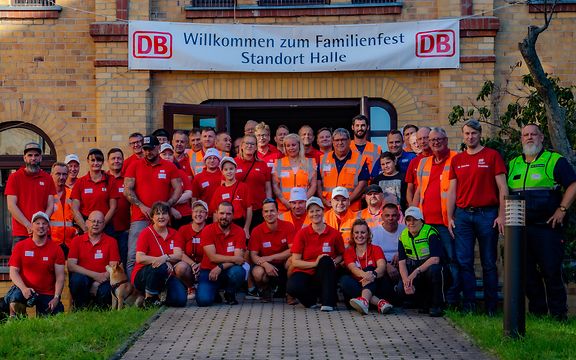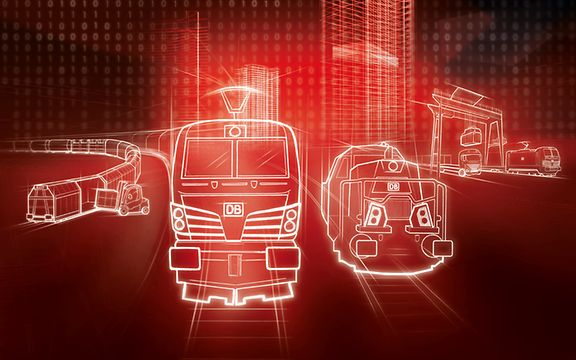Focus on: What does a transport manager actually do?
Introducing Marc Prunzel.
Specialists like Marc Prunzel work behind the scenes to make sure freight trains get from A to B economically. Prunzel, who is 38, works as a transport manager at DB Cargo to ensure that enough empty freight wagons are available for customers throughout Germany and Europe. He keeps an eye on freight wagon availability and makes sure the wagons are dispatched as economically as possible. His expertise benefits the Wagon Management Retail Logistics, Chemicals and Automotive team, which is part of the new Control Tower unit in Duisburg.
Profile: Marc Prunzel
How and why I came to DB CargoI've been with Deutsche Bahn since 2002, when I began my transport service training in the DB Long Distance unit. In 2014 I wanted to do something different, so I was looking for a new challenge.
What defines my jobI get a lot out of the daily contact with my co-workers, and also with our business partners. And it's a good feeling to know my work contributes to customer satisfaction and Strong Rail.
Why teamwork is essential in my joTeamwork is very important. I get a lot of support from our operations staff. The specialists there give me help and advice when I need it. A good working atmosphere is really important to me.
My hobbies and interestsI've been keen on football for as long as I can remember, and I head our local club's youth department.
It helps to be well organised
With over eight years' experience in rail freight transport, Prunzel is an expert at rail logistics and analysing transport flows. In close cooperation with the regional Control Tower teams, he works to improve the single-wagon freight services. "When I receive a customer order or enquiry, it needs to be planned efficiently and executed economically. Customer satisfaction is our top priority, so I have to think ahead to identify and eliminate possible disruptions like excessive idle times or empty runs before they become a problem," Prunzel says.
Teamwork makes the difference
Prunzel's goal is for all steps in the process to mesh perfectly, like a well-oiled machine. Many specialists are involved in getting a train loaded, coupled and ready to move. "I can only get the most out of our freight wagons with interdepartmental thinking, and with planning and decision-making that factors in the responsibilities of employees with all kinds of specialities, such as dispatchers and sales staff," he says.
Digital support for ideal planning
A transport manager's work depends on tools for keeping track of large amounts of data; all traffic is documented in databases – a transport manager's bread and butter. Nothing works without digital platforms, dashboards and GPS data. "When I check a transport, I take a close look at idle times and work out the wagon turnaround cycles. That gives me a feel for the adjustments I still need to make to get the most out of the wagons," Prunzel says.
His motivation: making operations as smooth as possible
But even with the best planning, the unexpected can happen. When routes are disrupted, trains break down and block the line, or freight wagons are in short supply, quick action is called for. "Skilful crisis management is an important part of my job. In an emergency, I'm in contact with the different Control Tower teams to try and get the wagons back in action. Tight coordination helps eliminate bottlenecks quickly, with everyone using their expertise to find the best solutions."
Such surprises are a big challenge for Prunzel, but they're also a source of inspiration. "I'm always striving to make operations run more smoothly. That's a big motivation for me. You always have to be willing to learn something new. Rail freight transport depends on its ability to deliver demanding logistics services, and as a transport manager I get to help shape those for our customers."

